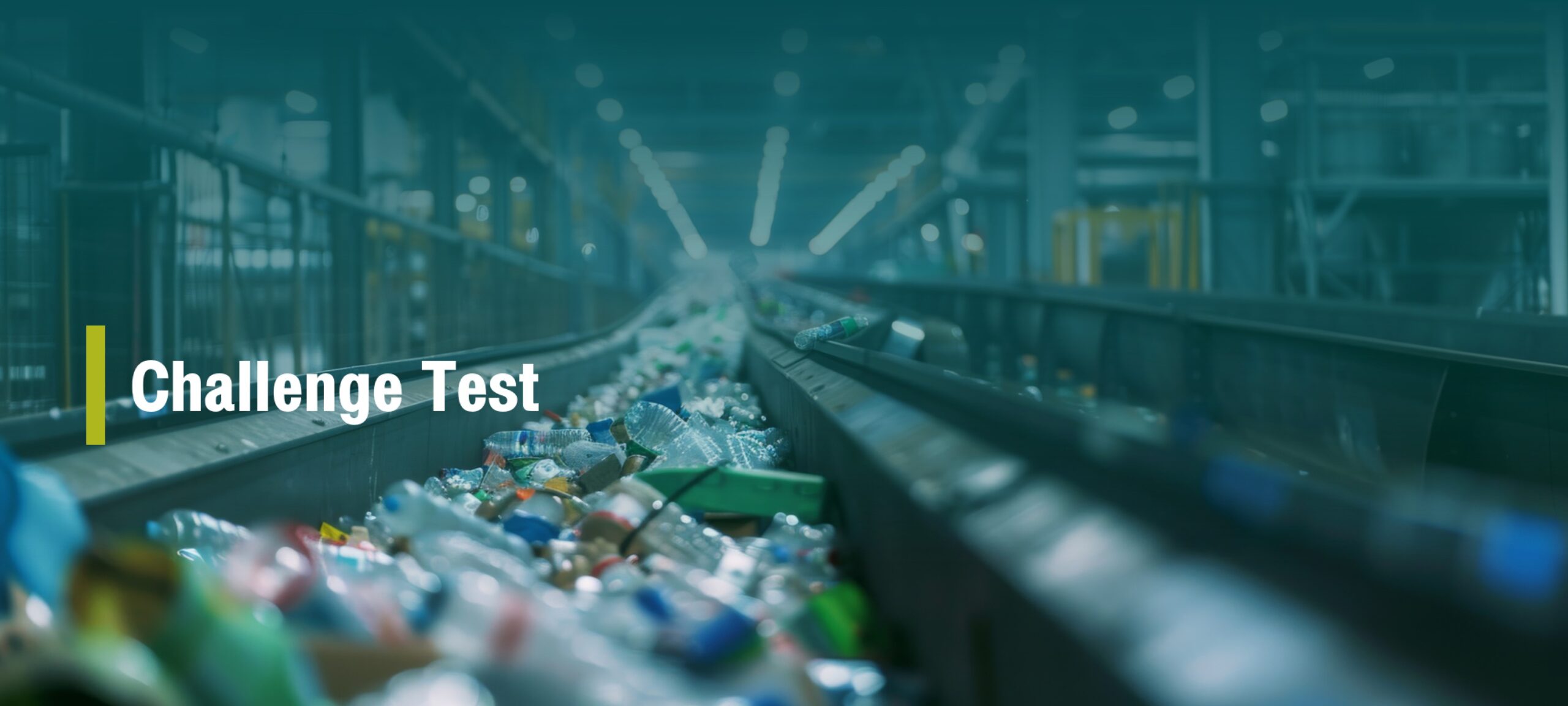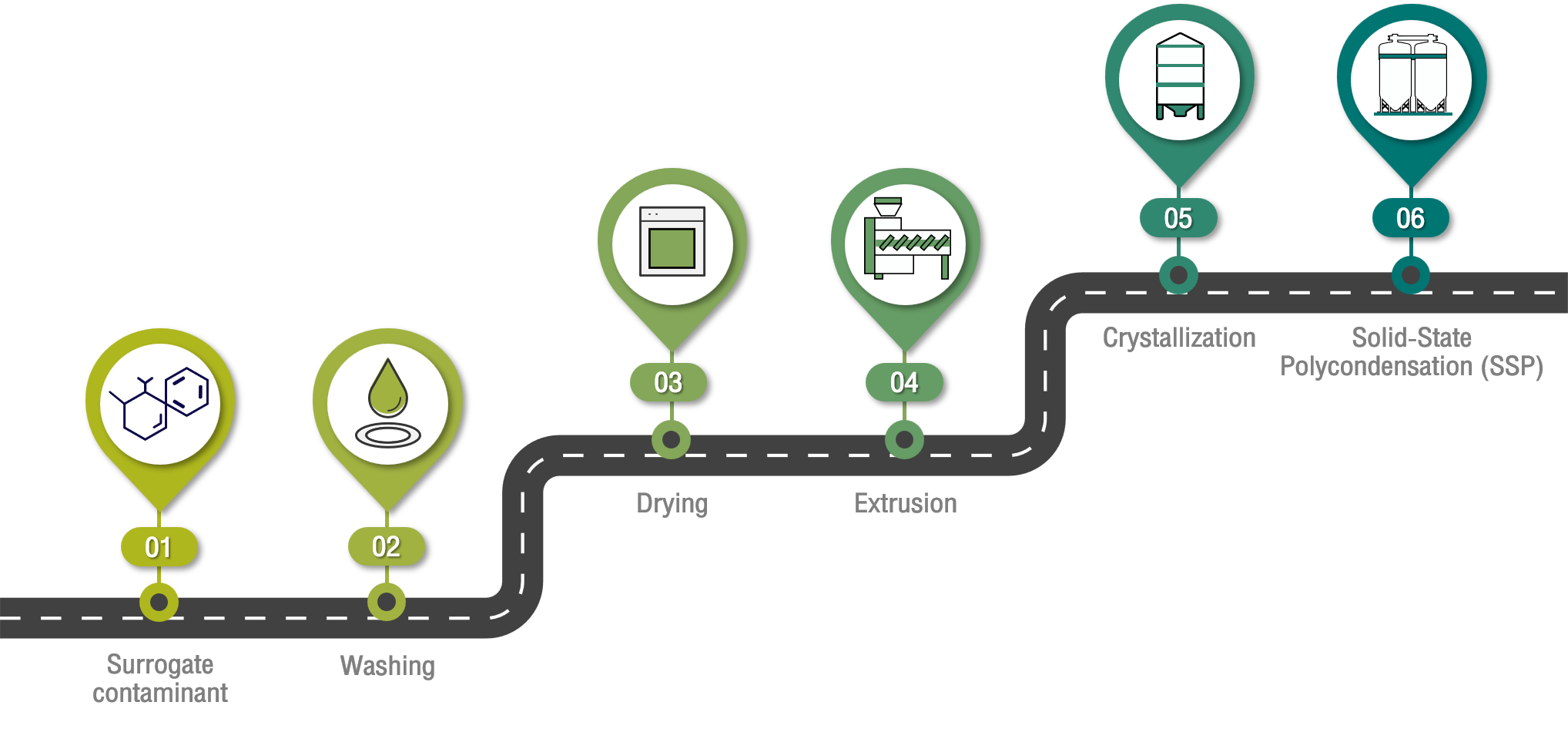
Challenge test or surrogate contaminant test for recycled plastics are essential procedures used to assess their suitability for food contact applications. This test is designed to evaluate the effectiveness of recycling processes of plastics in removing contaminants and ensuring the safety of recycled materials. Before recycling process, surrogate contaminants are introduced into plastic flakes to simulate worst-case contamination. The contaminated flakes are introduced into recycling process and then analyzed for the remaining concentration of surrogates. Migration test and modeling of residual surrogates can also be provided to the customers upon requested.


Surrogate Contaminants
Surrogate contaminants refer to substances used to simulate the existing contaminants in post-consumer plastics. The contaminants are categorized based on the volatility and polarity.
Volatile, polar: e.g. chloroform, chlorobenzene, 1,1,1-trichloroethane and diethyl ketone, representing the polar contaminants that can be easily evaporated.
Volatile, non-polar: e.g. toluene, representing the non-polar contaminants that can evaporate into vapor phase.
Non-volatile, polar: e.g. benzophenone and methyl salicylate, representing the polar contaminants with low volatility.
Non-volatile, non-polar: e.g. tetracosane, lindane, methyl stearate, phenylcyclohexane, 1-phenyldecane and 2,4,6-trichloroanisole, representing the non-polar contaminants with low volatility.

Recycling Process of PET
PET recycling process transforms post-consumer plastic waste into recycled materials. Key steps of recycling process include:
Washing: The collected plastic waste is washed to remove dirt, debris, and contaminants.
Drying: The washed plastic flakes are dried to remove residual moisture.
Extrusion: The dried plastic is melted and converted into pellets or sheets.
Crystallization: The plastic pellets/ flakes are heated to induce crystallization.
Solid-state polycondensation (SSP): The plastic pellets are heated to increase molecular weight, enhancing the mechanical and thermal properties of recycled plastic.
